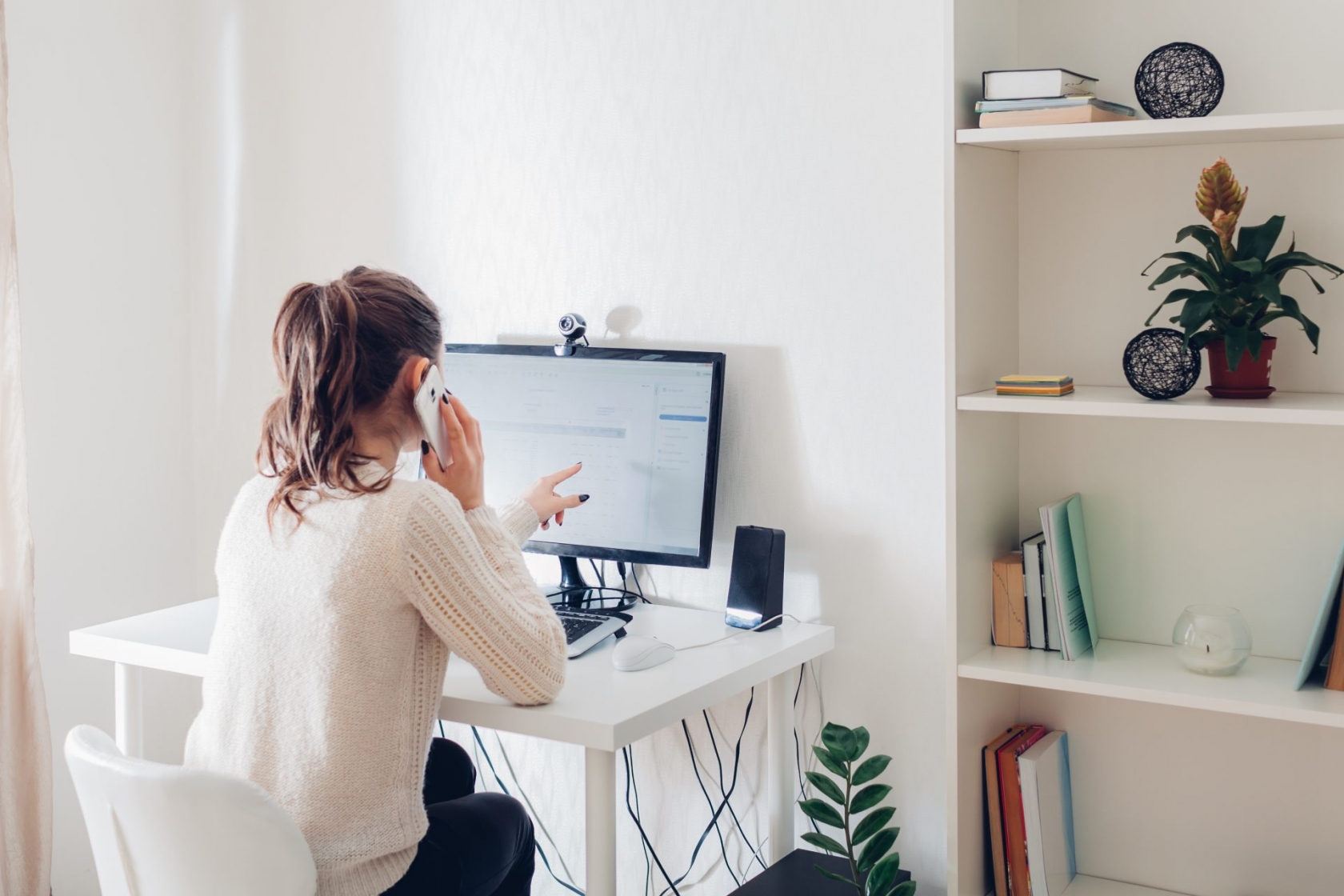Are you struggling to cope with the stress and pressure of working from home? Here’s why learning to say ‘no’ could help you to avoid burnout and boost your wellbeing.
Being a people pleaser is such an intrinsic part of me it might as well be written into my DNA.
For as long as I can remember, I have wanted people to like me. It doesn’t matter whether they’re one of my best friends or a stranger on the internet – in my brain, having the people I interact with think I’m a decent person is important.
I’m definitely not the only person who thinks this way. While you may not have such an extreme case of what I like to call ‘people-please-itis’, the majority of us will be familiar with the innate need to please the people around us.
You may also like
Is Britain’s toxic culture of “soldiering on” creating a pandemic of work stress?
This is especially true in the workplace. After all, this need to please is at least part of the reason why problems such as burnout, work stress and presenteeism are so prevalent. Our working culture places so much emphasis on serving others, that we’ve forgotten how to take care of ourselves.
However, not all hope is lost. According to Dominique Antiglio, a sophrologist and wellness expert at BeSophro clinic, there’s something simple we can all do to counteract this problematic aspect of our modern working culture – say ‘no’. A lot.
For Antiglio, saying ‘no’ isn’t just a means of reverse-engineering the impulse to people please – it’s a way to establish boundaries in our working lives and cultivate an approach to work which puts wellbeing first.
Saying ‘no’ is crucial for creating healthy boundaries – it invites less chaos and unnecessary work into your life
“Saying ‘no’ is crucial for creating healthy boundaries,” Antiglio explains. “It invites less chaos and unnecessary work into your life and means you’re not spreading yourself out too thinly – you’re then able to do a much better job with the things that are important. It will also conserve time and energy for your own wants and commitments without making you feel guilty or overwhelmed.
“Ultimately, saying ‘no’ to something is saying ‘yes’ to you, because you can’t be all things to all people.”
Undoing the instinct to say ‘yes’ to everything is one of the main reasons why pushing yourself to say ‘no’ more often is so important – especially while working from home.

Indeed, Antiglio stresses, it’s all too easy to say ‘yes’ to everything without the physical transition between work and home to separate the two spaces – an arrangement which, as we’ve seen with the rising number of people experiencing burnout, could be putting our mental health at risk.
“Saying ‘no’ can be liberating in life and at work because it breaks us free from the habit of being on auto-pilot,” she explains. “At work, saying ‘no’ creates the space for us to focus on the things that are more important and opens us up to the ability to delegate.”
Antiglio continues: “Saying ‘no’ is also crucial for preventing burnout. Burnout tends to occur among people with very strong minds – their mental will to push through overrides their body’s signals for rest and recovery, and they don’t know when to stop or say no.”
Saying ‘no’ is like a muscle – if you train it, it becomes a bit easier each time
In this way, it’s clear that learning how to say ‘no’ more often – especially when driven by a need to please someone – could help us to conserve our energy levels and avoid sacrificing our personal mental health for the sake of others.
Indeed, as Antiglio points out, saying ‘no’ doesn’t just prevent us from burning out, it can also improve our relationships (because it makes it easier for others to know where we stand) and creates more space for us to focus on the things we’re good at.
The problem? Learning how to say ‘no’ – especially when you’ve spent so long saying ‘yes’ – isn’t easy. However, according to Antiglio, it is possible with a bit of practice.

“The first time you say ‘no’ can be pretty scary,” she says. “It requires courage and confidence but saying ‘no’ is like a muscle – if you train it, it becomes a bit easier each time.
“Working up the courage is perhaps the toughest part, so practice wellbeing techniques such as breathwork, body awareness, and body scans that lower stress levels and help you to be more grounded in the body just before you have that important conversation. It will help you maintain clarity and support you in saying ‘no’ in a confident and effective way.”
She continues: “Preparing to say no through visualisation i.e. visualising yourself saying no positively and successfully, is a powerful way of seeing the act through as well. Some of the most successful athletes in the world practice visualisation before important matches for example, so you can employ the same technique here where you’re picturing yourself winning at saying ‘no’.”
You may also like
Working from home burnout: why taking care of our stress levels is just as important outside the office
Although saying ‘no’ for the first time definitely won’t be easy, it’s clear that working on your ‘no’ muscles and training yourself to stop saying ‘yes’ all the time is worth it in the long-run. Not only can setting healthy boundaries make it easier to focus on what’s important, it also puts you in better stead to help others when they really need it.
I don’t know about you, but that sounds like a pretty good deal.
Images: Getty/Unsplash
Source: Read Full Article
